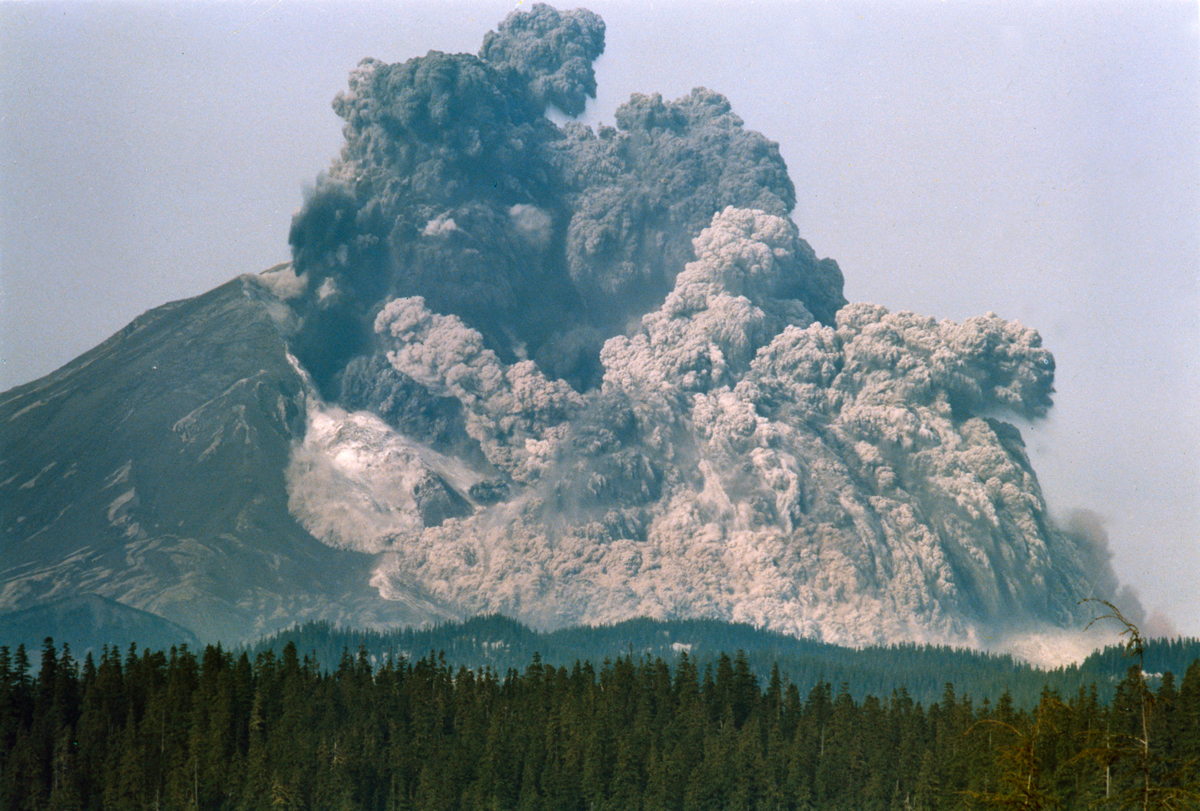 Mount St. Helens
Mount St. Helens
Environmental and Engineering Geololgy
89.541
|
|
Environmental and Engineering Geololgy |
| Course Home | Syllabus | Schedule | Supplemental Materials | Links |
|
Syllabus |
Course Description:
This course deals with the application of geological principles to environmental and engineering problems. The course is topical in nature and the topics to be covered any particular semester depend on the interests and expectations of the students enrolled in the course. Possible topics are
1) The physical properties of rocks and the importance of these properties in engineering applications, i.e., selection of building materials, aggregates in concrete, etc.
2) Properties of soils as related to engineering and environmental applications, i.e., stability of foundations, load-bearing structures, uptake and release of ions in ground and river water, clay mineralogy.
3) Slope processes, landslides, and subsidence, strategies for slope stabilization
4) Ground water geology and groundwater contamination
5) Running water and river systems, flooding, flood control strategies
6) Coastal processes and coastal hazards, engineering solutions to coastal erosion
7) Earthquakes and earthquake hazards
8) Volcanoes and volcanic hazards
9) Subsurface investigation and site selection
10) Mineral and energy resources and their environmental impact
Learning Outcomes:
At the end of this course you should
1) be able to convert between SI units (used in science) and US Customary units (used in engineering applications in the US);
2) be able to do basic engineering geology calculations;
3) be able to assess the role of geological materials in engineering applications;
4) be able to blend geological and engineering approaches to environmental and engineering problems;
5) be able to assess the potential impact of geological hazards
6) be able to assess the impact of anthropogenic activities on the natural environment.
Skills:
At the end of the course you should have acquired the following skills
1) be able to convert between US Customary units and SI units of measurement;
2) be able to do basic engineering geology calculations;
3) be able to apply geological principles to environmental problems and engineering applications.
General Course Information:
Attendance is mandatory for this course. Except in the case of personal illness or a death in the immediate family, both of which must be substantiated, the student MUST seek prior approval from the instructor for a class absence. Ski trips, hunting trips, extended weekends, an exam in another course, etc. are NOT legitimate excuses for a class absence. Any special pleading must be done before the missed class, not after. Any un-excused absence will result in a grade of zero being recorded for missed material (including exams). Homework problems will be assigned on a weekly basis and completion of these problems is essential in order to understand the material.
The student's attention is called to the definitions and regulations regarding cheating and plagiarism. The instructor shall assign a grade of zero to any portion of an exam on which he determines cheating has occurred. Likewise a grade of zero will be assigned to any portion of a homework exercise that has been plagiarized.
Course Materials:
Textbook:
West, Terry (1995) Geology Applied to Engineering. Waveland Press, Inc.
Useful Reference (supplemental readings will be assigned from this textbook):
Keller, E.A. (2011) Environmental Geology, 9th Ed. Prentice-Hall
Grading Policy:
Because this is an integrated course, your grade will be based on the total course evaluations. You will receive the same grade for the lecture and laboratory. Your grade will be determined as follows:
Two Hour Exams @ 20% each = 40%
Exercises = 30%
Final Exam = 30%
The Hour Exams will not be cumulative but the Final Exam will be inclusive.
My grading rubric is as follows:
Contacting the Instructor:
The instructor's Office Hours are M-W-F 11:00 AM - 12:00 PM. The instructor's office is Room 302b in the Olney building. Additional hours are available by appointment. If you have problems, or want to make an appointment, you can reach me either by telephone, 978-934-3907 (I have voice mail) or better yet by e-mail, Nelson_Eby@uml.edu. I log on to my e-mail account when I come in each day and thus will get your message first thing in the morning.
Sample Schedule:
Week 1 – Rocks and minerals (West Chapts. 2-5 and problems)
Week 2 – Engineering properties of rocks (West Chapt. 6 and problems)
Week 3 – Rock weathering and soils (West Chapt. 8 and problems; supplemental Keller Chapt. 3)
Week 4 – Elements of soil mechanics (West Chapt. 7 and problems)
Week 5 – Running water and river systems (West Chapt. 7 and problems; supplemental Keller Chapt. 6)
Week 6 – Groundwater geology (West Chapt. 15 and problems)
Week 7 – Water pollution and treatment (Keller Chapt. 13)
Week 8 – Landslides, subsidence, and slope stability (West Chapt. 14 and problems; supplemental Keller Chapt. 7)
Week 9 – Coastal processes (West Chapt. 16 and problems; supplemental Keller Chapt. 10)
Week 10 – Glacial and arid environments (West Chapts. 12 and 17 and problems)
Week 11 – Earthquakes (West Chapt. 18 and problems; supplemental Keller Chapt. 8)
Week 12 – Volcanic and other hazards (Keller Chapt. 9)
Week 13 – Subsurface investigation and site geophysics (West Chapt. 19 and problems)
Week 14 – Earth resources (Keller Chapts. 14 and 15)
All these topics will not be covered in a single semester. Emphasis will depend on the class. |